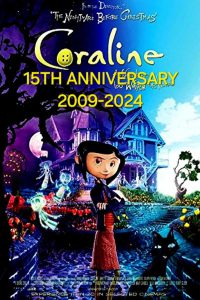 Tenesha Hughes
Tenesha Hughes
Staff Writer
It seems all you see on your television screens now are reality TV shows, but where’s the REAL in Reality TV? Students at Jackson State University have mixed feelings about reality TV.
Reality TV is television programming in which there are no writers, actors or scripts. Instead, the shows focus on real events or situations. Some reality programming comes in the form of competitions shows, such as “Survivor” or “The Amazing Race.” Others, such as “Teen Mom” and “Hoarders” focus on specific lifestyles.
Reality TV is very popular on the campus of Jackson State. It is not uncommon to hear students talking about hit shows like “T.I. and Tiny a Family Hustle”, “Love & Hip Hop”, “Basketball Wives”, and more in the café, class, and in the dorms. But do these reality shows have an effect on student behavior?
The Huffington Post article, “What Has Reality TV Done to Young Women?,” reported that over the past decade, reality TV has seen a dramatic rise in popularity and with that, a colorful range of cultural topics have since emerged — from documenting the lives of housewives to teen moms. According to a recent study by the Girl Scouts Institute, 47% of girls and young women say they are regular viewers, with 30% saying they sometimes watch. Many girls — 86% — believe these shows often pit girls against each other to make the shows more exciting and 70% say they make people think it is ok to treat each other badly.
Chante Vinson, a freshman psychology major from Memphis, Tenn. agrees.
“Well, as far as “TI and Tiny”, it (reality TV) has a positive influence. “Basketball Wives” and the rest are negative because it’s mostly about fighting, drama between women and messy people. It’s like a replay of high school and a Madea play, in my eyes,” said Vinson
Vinson added: “It can make both sexes look as if it degrades our race, but on the other hand, it is an understanding between media and African-American men and women. We as a whole may understand, but sometimes it can be a challenge and negative view for us to the outside world looking in, in my opinion.”
Sunny Fridge, an assistant professor in the Department of Mass Communications and founder of TigerTv22, believes that reality TV shows can impact behavior in viewers
“It really just depends on if the show is negative. There are positive shows, but if you’re impressionable, what you see is what you believe,” said Fridge.
Fridge added: “I think that in terms of it (reality TV) being an educational tool, Mass Communications departments help because if they teach students to have media literacy then they’ll understand that everything they see is not true.”
Th’Marves Brooks, a freshman psychology major from Jackson, Miss., feels that some reality shows actually seem real.
“’TI and Tiny” is setting a great example, ‘Marrying the Game’ is a show that shows tough times and good times in relationships, so that’s a good example. ‘Basketball Wives’, ‘Love and Hip-Hop’ are horrible examples, because it shows the bad things that we need to keep to ourselves,” said Brooks.
Wherever you stand on the issue, reality TV is on the rise and does not seem to be leaving your television screens anytime soon. According to Nielsen.com, reality TV first made an appearance in the top 10 rankings in 2000, and since the 2002-2003 season has consistently captured the largest percentage of the audience watching the top 10 broadcast programs. In 2012, of the top 10 primetime programs, 5 were unscripted shows.





Be First to Comment